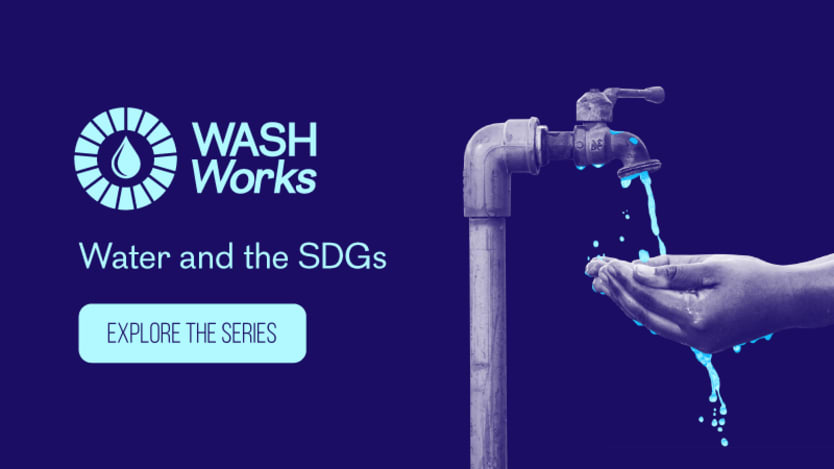Listen to "Where's the WASH in education?" on Spreaker.
When the link between adequate water, sanitation, and hygiene — or WASH — facilities in school and educational outcomes is clear, you’d think the education sector would be budgeting for their provision, but that’s often not the case, said Ada Oko-Williams, senior WASH manager of sanitation at WaterAid and co-founder of the African Women Sanitation Professionals Network.
Before the pandemic, 37% of schools didn’t have a decent toilet, and 43% had nowhere for their pupils to wash their hands with soap and water. That figure rises to 74% in sub-Saharan Africa.
Without such facilities, girls are forced to miss school during menstruation, young people might have to collect water instead of going to class and, if drinking water from unprotected water, children can become ill.
The problem, Oko-Williams said, is a lack of investment and recognition of WASH’s contribution to a good learning environment. Even today, she said, schools are being built without toilets and hand-washing areas because there’s no money set aside.
Devex in your ears: The WASH Works podcast
Listen to the previous episode “WASH at the heart of peace and war” wherein we look at how WASH causes conflict but can also be a peacekeeping tool.
“In Uganda, they were getting about 4 shillings [less than 1 cent] per child. How much can 4 shillings go per month per child in terms of provision of access to even the learning, the teaching, and the classroom activity, let alone the supporting infrastructure?” Oko-Williams asked.
In WASH Works, Devex explores how a lack of WASH might impact progress on the broader sustainable development agenda. The series taps into global perspectives and recommendations for changes, as well as taking a look at what local initiatives are simultaneously tackling challenges on the ground.
In this final episode of the series, Devex spoke to Oko-Williams and Mohammad Zobair Hasan, chief of research, evaluation, and monitoring at the Development Organisation of the Rural Poor, about the intersection of WASH and education and what actions can be taken to push forward progress on both Sustainable Development Goal 4 and 6.
Listen to all podcast episodes through Apple Podcasts, Spotify, and Spreaker.
Visit the WASH Works series for more coverage on water, sanitation, and hygiene — and importantly, how WASH efforts intersect with other development challenges. You can join the conversation using the hashtag #WASHWorks.



